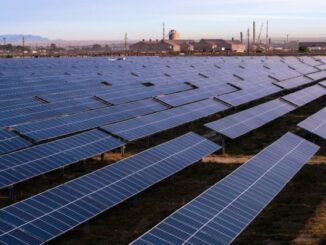
Political divisions within House Speaker Nancy Pelosi’s Democratic caucus are widening, threatening to tie up President Joe Biden’s $4.1 trillion economic agenda once it moves out of the Senate.
Democratic moderates and progressives in the House are making conflicting public demands for what they want out of the $550 billion bipartisan infrastructure package the Senate expects to pass by Tuesday and the $3.5 trillion budget framework that Democrats will approve on a party-line vote soon after.
Nancy Pelosi
Photographer: Stefani Reynolds/Bloomberg
Pelosi can only afford three Democratic defectors to win passage of the infrastructure bill and the eventual budget legislation if they are straight party-line votes.
Pelosi has promised progressives she would delay a vote on the infrastructure bill to pair it this fall with the more sweeping — and partisan — budget package of social safety net proposals funded by tax increases for corporations and the wealthy.
That linkage has been a central demand of House progressive such as Representatives Pramila Jayapal of Washington and Alexandria Ocasio-Cortez of New York, who are using the infrastructure bill as leverage to make sure their priorities on social programs and climate change are addressed.
“Progressives have been clear from the beginning: a small and narrow bipartisan infrastructure bill does not have a path forward in the House of Representatives unless it has a reconciliation package, with our priorities, alongside it,” Jayapal, chair of the Congressional Progressive Caucus, said recently.
Other Democrats, however, don’t want to wait. Six House moderates on Monday wrote to Pelosi urging quick House passage of the infrastructure measure as a stand-alone bill. They warned against waiting until October or November for the Senate to approve the second, larger bill.
“After years of waiting, the country cannot afford unnecessary delays to finally deliver on a physical infrastructure package,” the lawmakers, led by Representative Josh Gottheimer of New Jersey, a co-chair of the bipartisan Problem Solvers Caucus, wrote.
Pelosi has so far stuck with her original plan to pair the bills, an olive branch to progressives whose votes she can’t afford to lose. But Gottheimer and the five other moderates in their letter Monday made clear that their support also is pivotal on both packages.
The moderates also raised concerns over the $3.5 trillion plan’s expansive scope, spending levels, tax increases, as well as its effect on already inflation, the national debt, and the ability to respond to future pandemic emergencies.
For now, only that budget bill’s broad outlines are set. Senate Majority Leader Chuck Schumer told colleagues in a letter Monday that he, Pelosi and the chairmen of the House and Senate Budget committees are targeting the week of Sept. 15 to fill in the details.
Chuck Schumer
Photographer: Ting Shen/Bloomberg
In another signal of the House Democratic in-fighting ahead, two committee chairs — who typically would be tapped to sell the economic proposals to the caucus — are stressing their own reservations.
Climate Goals
Natural Resources Chair Raul Grijalva of Arizona on Monday called the Senate’s budget proposal “disappointing” because it doesn’t meet “critical climate goals or needs,” including drought mitigation in the West.
“Investments in electric vehicles and renewable energy technologies are critical to a cleaner future, but millions of Americans are facing drought, wildfire, erosion and habitat destruction today,” Grijalva, a past chairman of the Congressional Progressive Caucus, said.
Transportation and Infrastructure Committee Chairman Peter DeFazio of Oregon, has given the bipartisan infrastructure deal a lukewarm reception. DeFazio has said the bill doesn’t do enough to address climate change wants the two chambers to negotiate a final bill.
DeFazio’s committee had already passed its own $547 billion package, which includes added climate-related initiatives as well as nearly 1,400 so-called earmarks, or projects, chosen by members for their home districts.
Pelosi, who enters these battles knowing she has few votes to spare, must navigate these differences to get Biden’s economic agenda through her chamber.
The House is currently on a summer break until Sept. 20, but she would likely need to call members back into session sooner if she wants to stick to her goal of completing Biden’s infrastructure agenda by early fall.
“All of these things are urgent, and we are going to get them done,” Pelosi said on Friday.





